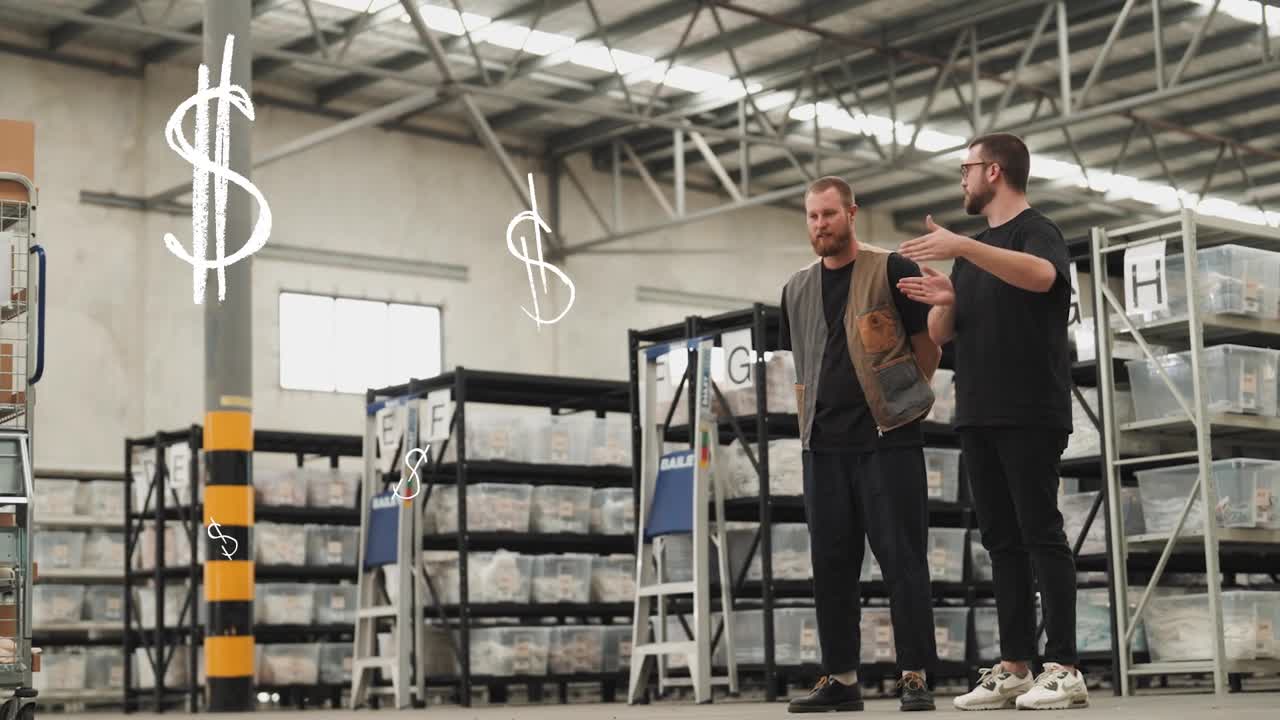What is Warehouse Picking and Packing?
Warehouse picking and packing are key processes undertaken in ecommerce order fulfillment. Depending on the scale of the company, picking and packing systems can be basic or sophisticated, using workers or robots.
Warehouse picking involves a system of categorizing and allocating warehouse stock and placement for efficient retrieval when an order has been placed. In a nutshell, it covers the ‘picking’ of the right products, and the ‘packing’ ready for shipment.
Why is Warehouse Picking and Packing Important?
There has been a big rise in the number of e-commerce sales in the US (with a rise of 9.8% to $1.2 trillion forecasted for 2024) and customers are increasingly looking for flexibility around their deliveries. This demand means that having an efficient picking and packing process is essential for both business profitability and customer satisfaction, with the two of course going hand in hand.
Benefits of Picking and Packing Software
Optimizing the picking and packing process can bring plenty of benefits, and software solutions can amplify them.
Reduced Costs
On profitability, optimizing the picking and packing process is also crucial for the bottom line. This stage of the delivery process is one of the most expensive, so reducing costs here will have a scalable and positive impact on your business. Using a software solution such as the one offered by Descartes Peoplevox will help reduce costly errors in picking and can help make the job of your staff much easier.
Stronger Inventory Management
Having a strong picking and packing process will also help with inventory management. Picking and packing software can help provide visibility over the exact location of items in a warehouse and really help with the management of stock levels. This also helps with the management of overselling or underselling certain product lines, increasing customer satisfaction massively in the long run.
Better Shipping Tracking and Label Printing
Another benefit of leveraging picking and packing software is the ability it has to integrate with shipment tracking and label printing. This integration reduces the time needed to complete the process and decreases the chance of errors occurring. An example of one of the most common errors in this scenario is a mis-ship, which can lead to big costs on item returns, and a dent in customer satisfaction.
4 Warehouse Picking and Packing Methods
There are a number of different ways that warehouses can organize their operations when it comes to picking and packing solutions, the 4 main ones are discussed below.
Piece Picking
Piece picking, also known as single order picking, is a method in which an order picker retrieves one item at a time from inventory to fulfill individual customer orders. This method is straightforward and is often employed in environments where orders are small and inventory is easily accessible.
Piece picking is highly effective in settings with low order volumes or when products are stored in close proximity, as it minimizes the need for complex planning or coordination. However, it can become less efficient as the number of orders or the size of the warehouse increases, as it may lead to longer walking times and lower overall productivity.
Multi-order/Batch Picking
Multi-order or batch picking is a more efficient picking strategy where a picker gathers items for multiple orders simultaneously. Instead of picking items for one order at a time, the picker retrieves all the necessary items for several orders in a single trip through the warehouse. This method significantly reduces the travel time compared to piece picking, as the picker can collect items for multiple orders in one pass through the inventory.
Batch picking is useful in warehouses with high order volumes, as it streamlines the picking process, reduces labor costs, and increases order fulfillment speed.
Wave Picking
Wave picking is a sophisticated strategy that combines elements of both zone and batch picking. In this method, orders are grouped into waves based on criteria such as shipping schedules, order priorities, or specific customer requirements. Pickers work through these waves, collecting items from designated zones and batching them as necessary.
Wave picking allows warehouses to coordinate picking activities with other processes like packing and shipping, ensuring a smooth workflow and timely order fulfillment. This method is highly effective in large, complex operations where synchronization between different stages of order processing is crucial. It can also be tailored to handle peak periods efficiently, balancing the workload across the warehouse.
Zone Picking
Zone picking is a method where the warehouse is divided into distinct zones, and each picker is assigned to a specific zone. Pickers only retrieve items from their designated zones, and orders are typically passed from one zone to the next until they are complete. This method allows for specialization within zones, enabling pickers to become highly efficient in their areas.
Zone picking is particularly useful in large warehouses with diverse inventory, as it minimizes the distance pickers need to travel and reduces congestion in busy aisles. This approach can also be combined with other picking methods, like batch or wave picking, to further optimize efficiency.
FAQs
Q: What is the difference between order picking and packing and order fulfillment?
Order picking and packing are individual steps within the larger order fulfillment process. Order picking involves selecting items from inventory to fulfill a specific order, while packing refers to preparing these items for shipment, ensuring they are properly packaged, labeled, and ready for delivery.
Order fulfillment, on the other hand, encompasses the entire process from receiving a customer’s order to delivering the product, including order picking, packing, shipping, and handling returns if necessary
Q: What is the average warehouse picking rate?
According to Warehouse and Fulfillment, the average picking rate for warehouse staff is 71 items an hour, with a typical error rate of 1-2%. This could mean for the typical warehouse an estimated 1.42 items are being picked and packed with an error occurring, further strengthening the case for optimization in this area.
Q: How do you increase warehouse picking rate?
Increasing warehouse picking rates involves several strategies, including optimizing the warehouse layout to minimize travel time, implementing advanced picking methods like batch or zone picking, and leveraging technology such as Warehouse Management Systems (WMS) and automation tools like pick-to-light systems and robotics. Regularly reviewing and refining these processes can further enhance efficiency and accuracy.
Q: What are WMS picking and packing features?
A WMS can offer a variety of features that enhance picking and packing processes. These include real-time inventory tracking, optimized pick paths, support for multiple picking strategies (such as the ones outlined above), and tools for packing optimization like box selection and order verification. WMS can also integrate with shipping systems, streamlining the entire order fulfillment process .
Q: How Can a WMS Benefit Your Company?
A Warehouse Management System can benefit your company by improving operational efficiency, reducing errors, and enhancing customer satisfaction. It provides real-time visibility into inventory, optimizes labor by guiding pickers through the most efficient routes, and integrates with other systems for seamless operations. This leads to better inventory management, faster order processing, and overall improved decision-making across the supply chain
Key Takeaways
- It’s an essential part of fulfillment: Warehouse picking and packing are vital for efficient order fulfillment, especially in the e-commerce era. Optimizing these processes is crucial for meeting customer expectations and maintaining profitability.
- There are advantages of software: Using a WMS that leverages a picking and packing feature can reduce costs, enhance inventory management, and streamline shipping through improved tracking and error reduction.
- There are different methods for picking and packing: Having an understanding of each method of picking (piece, batch, wave, and zone picking) is essential and should line up with your warehouse volume and requirements.





